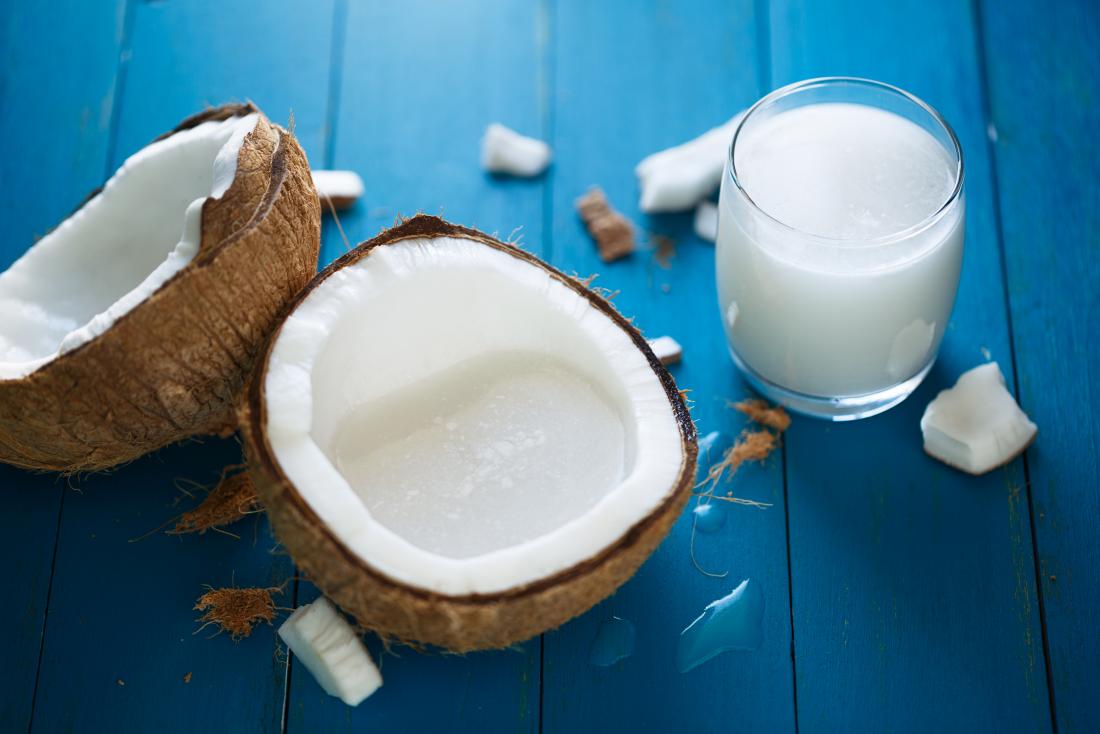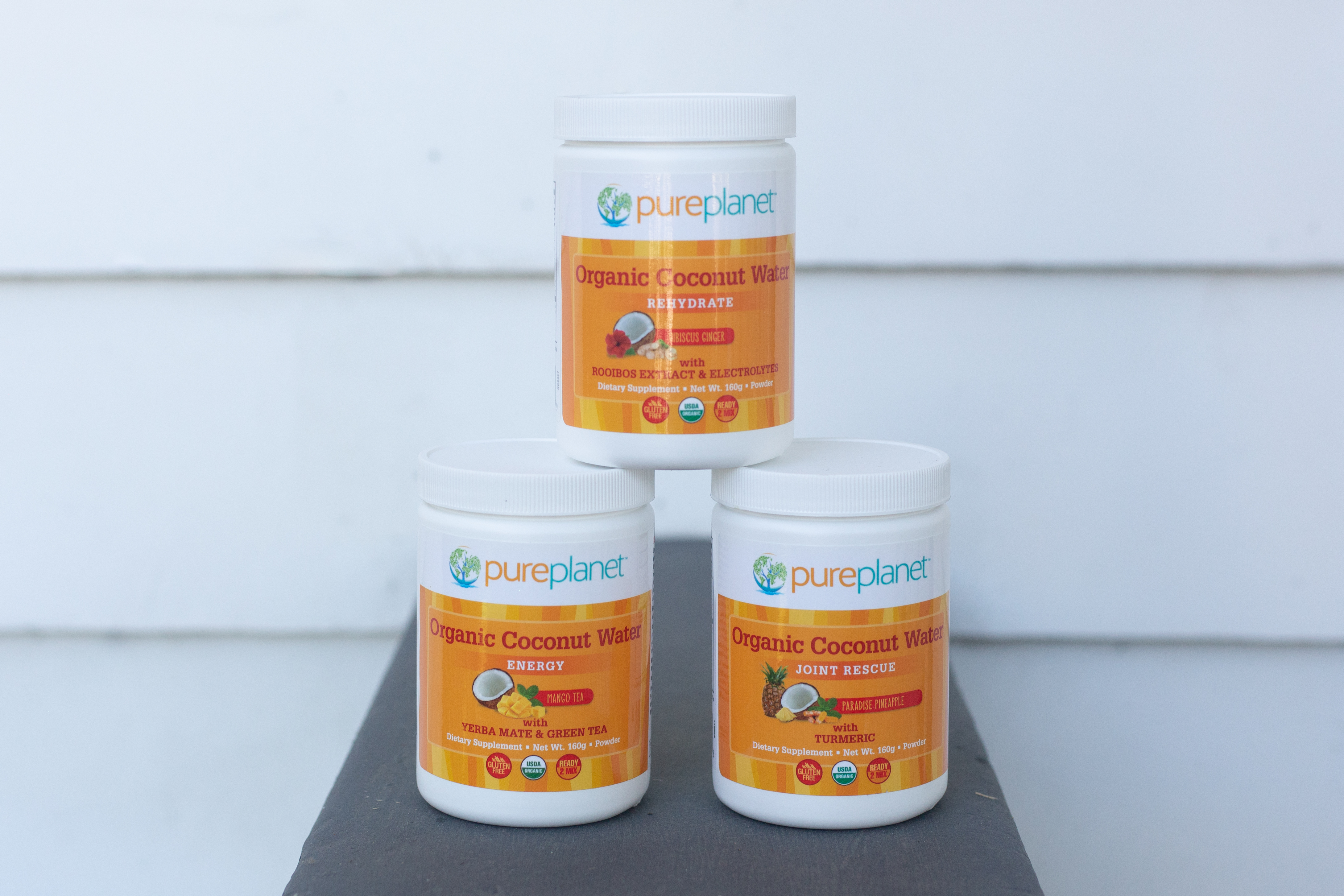Should You Ditch Sports Drinks for Coconut Water or Vitamin Water? Here’s the Science-Backed Answer
August 9, 2019Whether you’re going hard on the treadmill, waking up with a mind-numbing hangover or just quenching thirst on a hot day, sports drinks have become an American staple. Children even pack them in their school lunches. But should we be downing this drink as often as we do?
The market has expanded since the inception of these beverages in the ’90’s. Other energy-boosting alternatives (like beet juice and blends) take up just as much space in the market aisles. But today, we’re comparing three options. Between sports drinks, vitamin water and coconut water, which is the better choice?
The answer? Well, it’s important to focus on how you’re going to use them and just what ingredients go into your specific drink of choice. Let’s dive in a little deeper with a comparison.

How Do Sports Drinks Fare?
Exercise and Performance
Sports drinks weren’t always multi-purpose. They were first created in response to fatigued football players on the field. Does its purpose keep up decades later? A University of California, Berkeley report suggests that the beverage might actually be beneficial for hydration and endurance. But…there’s a catch.
The study merely suggests that they could be beneficial…if someone is working out vigorously in a session for 90 minutes or more; however, those results can’t be extended any farther than that. And it does not take into account how daily consumption would contribute to overall health.
What does this mean? Well, for the average person putting in say, 30 to 60 minutes a day, these drinks wouldn’t be doing the job. And even then, the harmful extras could do more harm than good in the long run.
So, what danger lurks in these drinks?
Drawbacks
Most sport drinks contain a bunch of additives, which makes adding these as your daily go-to’s a definite no-no. Some of these drinks may include:
- high fructose corn syrup (glucose-fructose syrup)
- sucrose syrup
- sodium citrate
- monopotassium phosphate
- food starch
- color additives (such as red 40)
Does anything already stick out to you? You might have already found at least two things you are shaking your head at. There are no super nutrients, just super dud ingredients.
First, let’s tackle the syrups. High fructose corn syrup helps sweeten and lengthen the shelf life of food and drinks. However, the syrup is associated with consequences. For example, the American Society of Nephrology suggests the syrup can contribute to higher blood pressure levels in adults, even with no history of hypertension.
And sucrose syrup? This sweetener has been tied to the promotion of obesity, type 2 diabetes, high blood pressure and artery disease. (1)
But, do the added chemicals do any benefit? Short answer, not really. In theory, adding potassium and sodium may sound like a good idea, but they don’t really add anything when drinking from sports drinks. You’re much better off just getting this from trace minerals from fruits, veggies and whole foods. (If you need help working greens, try our 4 easy steps to start eating more veggies).
Let’s not forget bout the color additives. You should stay away from those. Their sole existence is to make the drinks look more marketable, but studies have linked them to higher risks of hyperactivity in children and risk of other diseases.(2)
What About Vitamin Water?
Okay, so maybe sipping on a sports drink isn’t the best idea. Is vitamin water any better than sports drinks?
Like sports drinks, this concoction was created when plain water just didn’t do the trick. Some people thought, “what if we could add minerals and vitamins to boost rehydration?” Flash forward to now, where vitamin waters are plentiful, with diet and zero-calorie options to match.
But are they any different than sports drinks? Not really.
Exercise and Endurance
Again, adding minerals and vitamins to your drink sounds appealing. For people who avoid swallowing vitamin capsules (it can be difficult, we get it), seeking out vitamins through this route seems ideal.
With added electrolytes, certain vitamin water choices might come in handy, but only during hard, intense workouts here and there.
But what about an average user? The additives may set the drink back.
Drawbacks
In theory, vitamin waters are great: just replenish what you’re losing. Perfect, except that’s not exactly how that works.
Some of these beverages can contain excess amounts of vitamins, way more than one person would need in a day. And unless you were really pumping iron, like every second of a long workout, there is no way you would lose enough electrolytes or vitamins to even warrant the excess in each bottle.
But that’s fine, right? The more, the merrier? Actually, no. As with lots of things in life, too much of anything can be detrimental.
Plus, these drinks often fall prey to the same ingredient listings as sports drinks, including harmful syrups and sugars, and their potential damage. (3) It’s best to opt out of this choice.
So, how does coconut water compare?

Is Coconut Water Any Better Than Sports Drinks?
Is coconut water just another online health fad or does it actually have value? Until recently, coconut water was only seen as a healthy, hydration choice, especially for those that wanted a little different taste from plan water. But nowadays, it’s multi-purposeful.
So, what does coconut water have going for it?
Naturally, coconut water contains several plant nutrients:
- antioxidant properties (like those of tart cherry)
- fiber
- vitamin C (like the amla berry)
- important minerals, like electrolytes, magnesium, calcium and potassium
But can coconut water be beneficial for working out?
Coconut Water & Working Out
Part of the water’s antioxidant properties can help fight free radicals, which can be triggered during stress or injury. This can affect blood pressure, which may indirectly affect your workout. (4)
As for actual workout benefits? The research is sparse, but it’s still looking good. Because this water contains electrolytes, it can be a good source of replenishment after a good round of exercising.
One study published in the Journal of the International Society of Sport Nutrition suggests there this hydrating drink can stand up to high-electrolyte drinks in the replenishing category, with less calories and more natural nutrients. (5) Another study published in the Journal of Physiological Anthropology and Applied Human Science suggests sodium-infused coconut water and regular sport’s drinks perform on par as well. (6)
Of course, plain water can fuel average workouts too, but when it comes to intense workouts, you can opt for coconut water instead of high calories and fructose-filled options. Just be sure your coconut water uses pure and true ingredients and is free of added sugars.
Pure Planet Coconut Water
Coconut water is already great, so some superfood-help can only make it more awesome! That’s why we carefully crafted our premium coconut water blends.
- Joint Rescue: Optimized with tumeric and black pepper, this blend promotes healthy joints–for athletes and non-athlete’s alike!
- Rehydrate: Mixed with ginger, mineral salts and rooibos, this blend provides boosted hydration support, supporting electrolyte balance.
- Energy: Specially-designed with yerbe mate and rhodiola root, this blend promotes stable energy.
Stay hydrated, friends!
Cited Studies:
- Shapiro, A., Tümer, N., Gao, Y., Cheng, K. Y., & Scarpace, P. J. (2011). Prevention and reversal of diet-induced leptin resistance with a sugar-free diet despite high fat content. British Journal of Nutrition, 106(3), 390-397.
- Arnold, L. E., Lofthouse, N., & Hurt, E. (2012). Artificial food colors and attention-deficit/hyperactivity symptoms: conclusions to dye for. Neurotherapeutics, 9(3), 599-609.
- Malik, V. S., Schulze, M. B., & Hu, F. B. (2006). Intake of sugar-sweetened beverages and weight gain: a systematic review–. The American journal of clinical nutrition, 84(2), 274-288.
- Santos, J. L., Bispo, V. S., BC FILHO, A. D. R. I. A. N. O., Pinto, I. F., Dantas, L. S., Vasconcelos, D. F., … & Gomes, O. F. (2013). Evaluation of chemical constituents and antioxidant activity of coconut water (Cocus nucifera L.) and caffeic acid in cell culture. Anais da Academia Brasileira de Ciências, 85(4), 1235-1247.
- Kalman, D. S., Feldman, S., Krieger, D. R., & Bloomer, R. J. (2012). Comparison of coconut water and a carbohydrate-electrolyte sport drink on measures of hydration and physical performance in exercise-trained men. Journal of the International Society of Sports Nutrition, 9(1), 1.
- Saat, M., Singh, R., Sirisinghe, R. G., & Nawawi, M. (2002). Rehydration after exercise with fresh young coconut water, carbohydrate-electrolyte beverage and plain water. Journal of physiological anthropology and applied human science, 21(2), 93-104.


